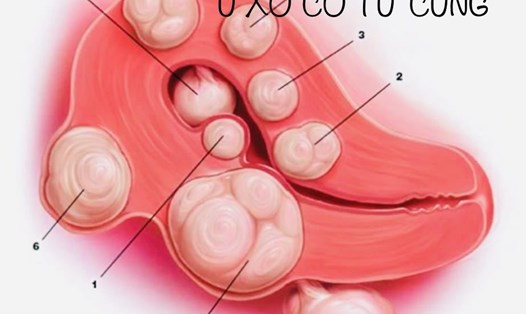Dr. Chetan Rai, orthopedic surgeon at Apollo Spectra Hospital, Bangalore (India) - said that myopathy (also known as muscle fibrosis, or fibromyopathy) is a condition in which muscle tissue is changed and replaced by fibrous tissue, causing impaired muscle function.
Fibromyalgia is associated with widespread musculoskeletal pain, fatigue, lethargy, and sometimes sleep disturbances.
Although there is no cure, making appropriate lifestyle changes can help relieve symptoms, improve quality of life, and slow disease progression.
Here are some lifestyle changes that can help reduce the symptoms of fibromyalgia:
Hot bath: Take a hot bath to reduce morning muscle stiffness, improve blood circulation and reduce pain during exercise.
Hydrate: Hydrate your body with fresh juices and drink at least eight glasses of water every day.
Eat foods rich in antioxidants: Cabbage, carrots, spinach, garlic and onions in raw form can help reduce tissue inflammation.
Meet your daily protein needs: This is to maintain muscle mass and increase strength. Eat 2-4 tablespoons of flaxseed powder every day because it contains omega-3 fatty acids that help reduce inflammation.
Avoid alcohol and caffeine: In addition to causing sleep disturbances, smoking and alcohol can increase cellular inflammation, oxidative stress in the body leading to irritability, mood swings, fatigue, unstable gut health and other problems.
Therefore, if you must consume it, moderate amounts of caffeine (1 cup of coffee per day) along with strict cutting down on alcohol and smoking can help you avoid severe fibromyalgia.
Avoid fried foods and refined flour products: Refined and sugary foods cause inflammation in the body at the cellular level, leading to abdominal discomfort, bloating, heartburn, irritability, muscle fatigue or neck pain, and an unhealthy gut.
Calcium and magnesium supplementation: According to studies, women with fibromyalgia have lower levels of calcium, magnesium, iron, and manganese in hair mineral analysis. Therefore, adequate calcium supplementation is important to reduce the risk of osteoporosis or bone fractures.
Some good sources are curd, homemade buttermilk, fermented products (fermented cabbage/soybean, fermented curd), cooked green leafy vegetables, nuts, lean meat… can help.
Exercise: Improve your overall fitness level through gentle activities like swimming and walking.
Relaxation: Practice relaxation techniques such as meditation, deep breathing, yoga, and massage to help relieve cramps and relieve pain in sensitive areas.









